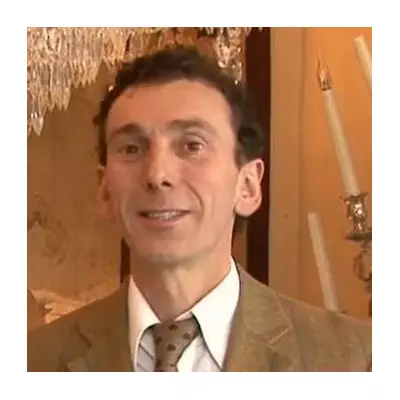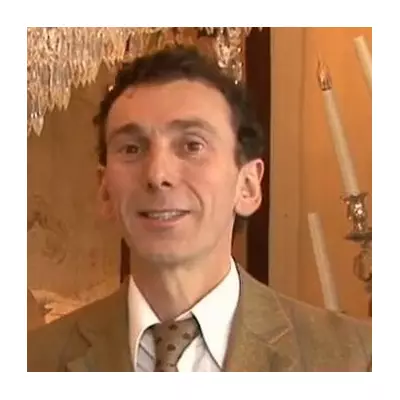
Britons are being warned about a dramatic increase in sophisticated romance scams as the festive season approaches, with fraudsters specifically targeting those who might be feeling lonely during Christmas.
The Johnny Depp Impersonation That Cost Thousands
A 32-year-old woman's experience has gone viral on TikTok after she revealed how she was convinced she was communicating with Hollywood actor Johnny Depp through Instagram. What began as an innocent direct message quickly developed into months of emotional manipulation and financial exploitation.
The scammer rapidly moved their conversation from Instagram to WhatsApp, where the tone became increasingly intimate. "He started calling me pet names like 'babe' and 'baby'," the victim explained in her viral video. "But looking back, they weren't things Johnny Depp actually calls his fans. I'd watched so many videos of him meeting people - he says 'darling' or 'sweetheart'. Never 'baby'. That was a telltale sign I missed."
The situation escalated when the impersonator began requesting money, starting with £400-£450 sent via PayPal for a supposed meet-and-greet opportunity. The scammer specifically instructed her to send the money as 'friends and family', making it impossible to recover the funds. Further requests followed for gift cards and fabricated "custom fees" for items that never materialised.
Banking Giant Issues Festive Warning
Nationwide Building Society has officially designated the winter period as a "high risk period" for romance scams, noting a significant increase in such cases during the colder months.
Annya Burskys, Nationwide's Head of Fraud Operations, explained why this time of year is particularly dangerous: "The festive period is a high-risk time. People want connection, companionship, and scammers exploit that."
She highlighted that while under-25s are increasingly targeted, victims come from all age groups. The pattern typically involves scammers meeting people on dating apps before quickly moving conversations to WhatsApp, where they build emotional trust before making financial demands.
"They claim it's for bills, a sick relative, or emergency help," Burskys noted. "Some victims pay for 'services' they never receive."
Celebrity Impersonation Scams: A Growing Problem
The Johnny Depp incident is far from isolated. In February, multiple women were targeted by scammers operating from a backroom office on London's Oxford Street. One victim handed over £60,000 in cash at a souvenir shop for a celebrity she believed she was dating, leading to police making two arrests.
Earlier this year, a French woman lost $855,000 (£649,000) after being convinced for an entire year that she was in a relationship with Brad Pitt. The Oscar-winning actor publicly addressed the situation, stating: "It's awful that scammers take advantage of fans' strong connection with celebrities."
Pitt added an important warning: "This is an important reminder to not respond to unsolicited online outreach, especially from actors who have no social media presence."
In 2023, Nottinghamshire Police issued warnings after multiple reports of fake celebrity impersonators, including one case where a victim lost approximately £5,000 to someone posing as TV chef James Martin.
From Victim to Meeting Her Idol
One particularly remarkable case involved Janet Smith, a 64-year-old Take That superfan from Colchester, Essex. The pizza restaurant worker believed she was communicating with Gary Barlow on Facebook after being "bombarded" with compliments.
The truth emerged when the scammer - a 24-year-old Nigerian man - confessed everything after Janet grew suspicious. He apologised but maintained he genuinely loved her and praised her dancing videos, before once again requesting money.
In a heartwarming turn of events, the real Gary Barlow learned about the situation and invited Janet to Take That's Carrow Road concert in Norwich on May 28, 2024. She described meeting her idol as "the greatest day", recalling: "Gary came running down the corridor saying hello and gave me a hug. He said he was so sorry about what happened and asked how I was - it was lovely."
Janet managed to obtain her scammer's identity by offering her WhatsApp number in exchange for the information. The young man revealed he was "very poor" and genuinely liked Take That's music.
Rather than feeling embarrassed, Janet wants to help others avoid similar situations. "Elderly people are going to be adding these 'celebrities'. They're going to be conning these old people," she warned. "I understand that they are poor and they have to get money for their family, but people might lose a lot of money over this."
How to Protect Yourself
Fraud experts emphasise several red flags that should immediately raise suspicion:
- Moving conversations off dating apps to private platforms like WhatsApp
- Rapid progression to intimate pet names and declarations of love
- Requests for money, regardless of the reason given
- Pressure to send money as 'friends and family' to avoid protection
- Inconsistencies in how celebrities actually communicate with fans
Annya Burskys offers straightforward advice: "If someone you've never met in person asks for money, pause and verify they are who they say they are. Never send funds without checking their story."
As the festive season approaches, authorities urge the public to remain vigilant and report any suspicious approaches to Action Fraud, the UK's national reporting centre for fraud and cybercrime.





